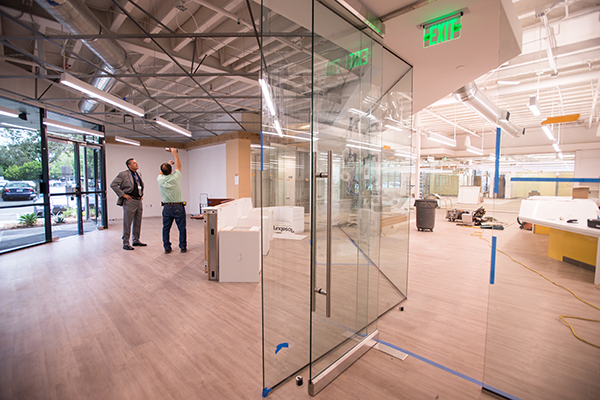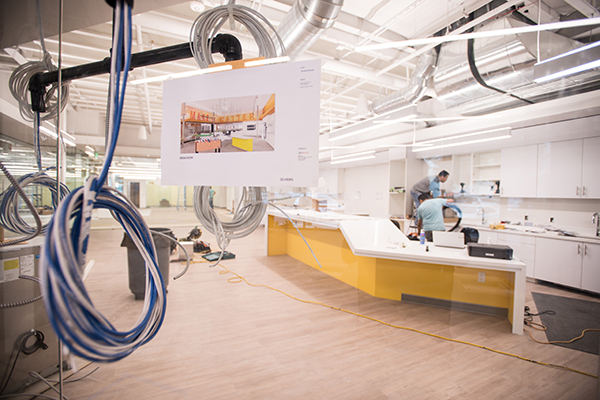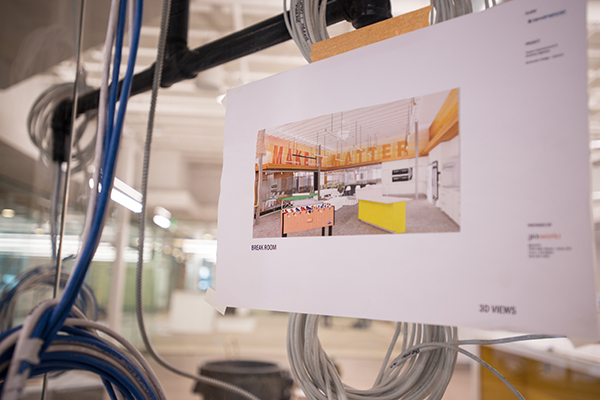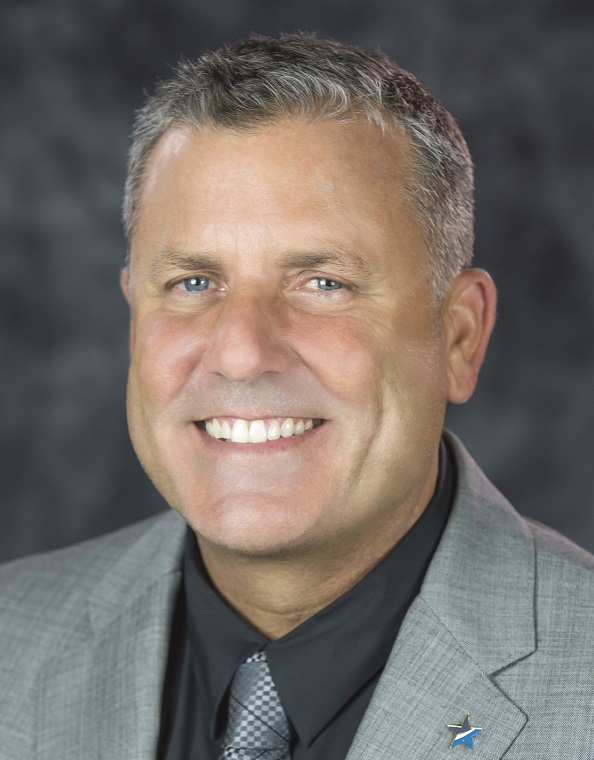Advertisement
Training Tomorrow’s Workforce, Today

It’s no secret that the mortgage industry workforce is aging. The average Loan Originator has been in the business for a few decades now and is approaching their mid-50s. As a result, a large segment of our industry will be nearing retirement in the coming years. Since this older generation has been the bedrock of our workforce for so long, there will be a significant void left in the marketplace if lenders don’t begin planning for the future now. The industry is at a pivotal point where now more than ever lenders need to begin training tomorrow’s workforce today. And who is the future workforce? Millennials. They’re a key part of the industry’s continued success. They’re the largest living generation and they make up the largest share of American workers. Educating this massive age group is vital. Not only do they have attributes that make them ideal for a career in mortgage banking but since this generation ranges from 20 to 36, a good portion of them are entering their homebuying years. In fact, 42 percent of current homebuyers are Millennials, which is more than any other generation. If lenders want to attract this key consumer group, one of the best ways to engage them is by employing other Millennials because you have to have mirrors in the market; people who reflect the demographic you’re seeking to serve. But how do we begin educating Millennials to be our future mortgage professionals? It starts with not simply seeking to train them for a position that meets a momentary need, but rather identifying ways to attract them to the industry for the long haul.
 On-the job training
On-the job training
Even though a college education isn’t needed to make it in mortgage banking, companies have to have a solid process for educating Millennials, if they’re going to be viable part of this workforce. Lenders cannot expect them to come equipped with prior training because many of them have never had a background in mortgage banking. That’s why if you want to ensure that your company has a quality team tomorrow, you have to take the initiative today to start building your own workforce.
 On-the job training
On-the job trainingEven though a college education isn’t needed to make it in mortgage banking, companies have to have a solid process for educating Millennials, if they’re going to be viable part of this workforce. Lenders cannot expect them to come equipped with prior training because many of them have never had a background in mortgage banking. That’s why if you want to ensure that your company has a quality team tomorrow, you have to take the initiative today to start building your own workforce.
Establishing a robust system to train beginners requires more than just giving them a casual introduction to the industry. It’s important that new recruits have the best chance for long-term success, which means you’ll have to equip them with the right combination of hands-on learning and classroom-style instruction. This next generation will need to have a solid understanding of industry guidelines just as much as they’ll need experience with preparing loan files and skills in dealing with customer objections.
One approach for providing this type of well-rounded education that has been highly effective for New American Funding has been to create an entry-level position that serves like a boot camp, giving employees intense on-the-job training. It’s tailored to equip them with real-world mortgage experience like handling customer calls and following up on leads. Once new employees successfully complete an introductory phase, they have the opportunity to enroll in our company’s Launch Lab, which is a newly built educational facility that grooms employees for a specific career path in the industry. The goal? When they’re finished, they should have acquired practical experience, become fully licensed, and be ready to assume a bigger role on our team.
 Mentor young employees
Mentor young employees
Although attracting Millennials to your company begins the process of building your workforce, understanding how to retain them is key. That’s where mentorship plays a big role. One of the top three factors in retaining Millennials is providing them with the opportunity to continue learning and growing. Since Millennials care about ongoing professional development so must mortgage lenders if they want to keep them on their team. Many companies offer initial training, which is essential, but it’s the ongoing education that’s the difference maker for most Millennials. One way to provide that progressive education is through effective mentorship opportunities.
 Mentor young employees
Mentor young employeesAlthough attracting Millennials to your company begins the process of building your workforce, understanding how to retain them is key. That’s where mentorship plays a big role. One of the top three factors in retaining Millennials is providing them with the opportunity to continue learning and growing. Since Millennials care about ongoing professional development so must mortgage lenders if they want to keep them on their team. Many companies offer initial training, which is essential, but it’s the ongoing education that’s the difference maker for most Millennials. One way to provide that progressive education is through effective mentorship opportunities.
As employees begin a new position, initially placing them in a supportive role is a good avenue to initiate the mentorship process. It allows them to assist senior staff members with the workflow, which gives new talent the opportunity to take on a measure of responsibility, but it also creates an educational environment where they can still learn from more experienced employees. Additionally, when veteran mortgage professionals serve as mentors, it gives them a hardworking assistant, which frees up some of their time to focus on other top priorities. Ultimately, this learning dynamic creates a win-win scenario for both mentor and mentee.
Millennials want ongoing professional development because they want the opportunity to advance their career; therefore, establishing a continuous learning environment lets Millennials know that if they grow, they can move on from an entry level position to more senior level roles. When Millennials don’t see a clear path to move up in your company, they eventually move on to a different opportunity. That’s why it’s important to create a culture where mentorship is commonplace and easily accessible because it not only helps develop future leaders, but it ensures your ongoing success.
 Understand the Millennial mindset
Understand the Millennial mindset
When you understand the Millennial mindset, then you understand what it takes to keep them on your team. This new generation has grown up in a digital age so they’re nimble with technology; consequently, they welcome work environments where technology is fundamental and it enables them to be more effective in their daily role. That means mortgage banking has to continue evolving. Even though Loan Originators started out using basic tools like a paper application, the industry cannot become stagnant. Companies have to provide intuitive resources in order to attract Millennial workers, who want mobile tools and other advanced technology that make their job easier because they’re expecting a different work experience.
Furthermore, this new generation is unique in that they give added consideration to a job’s purpose over certain traditional factors. They don’t simply want to work but they want to do work that matters. That’s why lenders have to educate Millennials about what it means to work in mortgage banking. It’s more than simply approving a loan; it’s about helping people buy a home, which for many Americans has been a longtime dream. When your company knows your purpose and gets actively involved in making a difference both inside and outside of the industry, it becomes even more appealing to Millennials because they want to be part of a noble cause.
Create the right culture
As you create the right work culture, it leads to greater success with retaining Millennials. This new generation is looking for work environments that give them a certain lifestyle. Whether that means having special onsite benefits like car washing and dry cleaning services or simply creating a fun work atmosphere, they want a good work-life balance and they want to enjoy coming to work every day. That means lenders have to find ways to cultivate an environment that’s conducive to Millennials, even when it comes to learning.
 Understand the Millennial mindset
Understand the Millennial mindsetWhen you understand the Millennial mindset, then you understand what it takes to keep them on your team. This new generation has grown up in a digital age so they’re nimble with technology; consequently, they welcome work environments where technology is fundamental and it enables them to be more effective in their daily role. That means mortgage banking has to continue evolving. Even though Loan Originators started out using basic tools like a paper application, the industry cannot become stagnant. Companies have to provide intuitive resources in order to attract Millennial workers, who want mobile tools and other advanced technology that make their job easier because they’re expecting a different work experience.
Furthermore, this new generation is unique in that they give added consideration to a job’s purpose over certain traditional factors. They don’t simply want to work but they want to do work that matters. That’s why lenders have to educate Millennials about what it means to work in mortgage banking. It’s more than simply approving a loan; it’s about helping people buy a home, which for many Americans has been a longtime dream. When your company knows your purpose and gets actively involved in making a difference both inside and outside of the industry, it becomes even more appealing to Millennials because they want to be part of a noble cause.
Create the right culture
As you create the right work culture, it leads to greater success with retaining Millennials. This new generation is looking for work environments that give them a certain lifestyle. Whether that means having special onsite benefits like car washing and dry cleaning services or simply creating a fun work atmosphere, they want a good work-life balance and they want to enjoy coming to work every day. That means lenders have to find ways to cultivate an environment that’s conducive to Millennials, even when it comes to learning.
 When my company started developing the concept for its Lab, we designed it with the Millennial in mind. Rather than building traditional classrooms with confined work stations, we converted the 25,000-square foot training facility into a contemporary learning space with polished concrete floors, open ceilings, and mobile work stations that could be easily arranged for team building exercises. It’s configured with screens that descend from the ceiling and podiums that disappear once students finish training. By giving the center a state-of-the-art layout, it creates an environment where Millennials would be excited about learning and growing. Many of them will be drawn to this industry because they have the ability to earn a good living and it’s a profession that provides other rewarding benefits, but what will determine whether they work at your company as opposed to the competition will largely depend on the culture you create.
When my company started developing the concept for its Lab, we designed it with the Millennial in mind. Rather than building traditional classrooms with confined work stations, we converted the 25,000-square foot training facility into a contemporary learning space with polished concrete floors, open ceilings, and mobile work stations that could be easily arranged for team building exercises. It’s configured with screens that descend from the ceiling and podiums that disappear once students finish training. By giving the center a state-of-the-art layout, it creates an environment where Millennials would be excited about learning and growing. Many of them will be drawn to this industry because they have the ability to earn a good living and it’s a profession that provides other rewarding benefits, but what will determine whether they work at your company as opposed to the competition will largely depend on the culture you create.Looking ahead
Educating future mortgage professionals is a very involved process, but it’s a worthwhile commitment. Not only does it provide a gateway for newcomers to enter the industry, but it builds a foundation to continue moving the industry forward.
 Rick Arvielo is Chief Executive Officer of New American Funding. In 2003, Rick and his wife Patty began doing business as New American Funding, a 40-employee, refinance call-center. In 2011, Rick introduced purchase transactions to the company’s operations, and in 2012, New American Funding opened their first branch. Their retail division has since exploded, adding 130-plus retail branches and more than 750 loan officers focused on purchase transactions in only four years.
Rick Arvielo is Chief Executive Officer of New American Funding. In 2003, Rick and his wife Patty began doing business as New American Funding, a 40-employee, refinance call-center. In 2011, Rick introduced purchase transactions to the company’s operations, and in 2012, New American Funding opened their first branch. Their retail division has since exploded, adding 130-plus retail branches and more than 750 loan officers focused on purchase transactions in only four years.
This article originally appeared in the August 2017 print edition of National Mortgage Professional Magazine.
About the author





